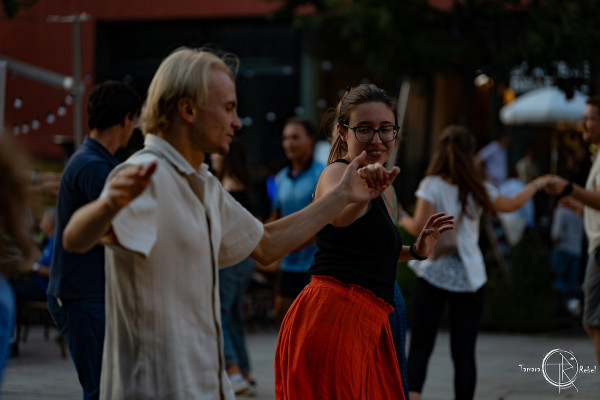Valentina Sanella
Interview by Nicola Nosengo, NCCR MARVEL on 19 October 2024
Have you always been interested in science?
My interest in science began when I was halfway through high school. I had chosen the scientific high school because I was better at math than at Italian. Towards the end of high school I was planning to study mathematics in Como. Then I attended an open day at the mathematics department at Bicocca, that shares a building with the materials science department. After getting information from both, I realized that I would probably end up hating mathematics, so I turned to materials science that in that University has a lot of mathematics anyway.

Valentina Sanella
How did you hear about the INSPIRE Potentials Program?
Livia Giordano, who is my supervisor in Milan and who spent many years at MIT with Nicola Marzari, sent me the information about the MARVEL fellowship. She knew I wanted to do my thesis outside Italy to have a different experience and avoid repeating the things I had already done for my bachelor. I had originally thought about doing something more experimental, but once my application was accepted, I turned to theory instead.
What is the topic of your master’s project?
I am studying lithium cobalt oxide, the fundamental material for lithium batteries, using DFT+U+V. Simulations of its electrochemical properties are currently not good enough, and our strategy is to apply the U parameter not only to transition metals, in this case cobalt, but also to oxygen. We hope to get to a publication soon, because this approach has rarely been used, especially for energy and voltage computing. We got to voltage simulations that are in the range of experimental measures, and this is the first time it happens.
Do you think women face specific challenges in the sciences?
For sure there is still a strong unbalance especially in materials science courses, that are similar to engineering course in this respect. In my bachelor’s course in Milan there were around ten girls out of seventy students. The situation was completely reversed at the end the course. I did my bachelor during the Covid pandemic, and only 20 people from the bachelor’s course made it to the master’s, and they happened to be mostly female. But that was a statistical anomaly. I am not sure if girls are just less at ease with such topics or they are not encouraged enough to consider them.
Any advice for young girls interested in science?
I think it all comes down to be willing to take risks, apply to interesting projects, use opportunities for grants and fellowships. Especially for girls, there is often the problem of not feeling adequate for a certain position, and it can be scary to enroll in a class where you know most students will be males.
What are your plans for the future?
I will graduate in November, and I have already a contract with PSI to do my PhD there under Iurii Timrov’s supervision. After that, I am open to all possibilities. I will see where my PhD will take me.
